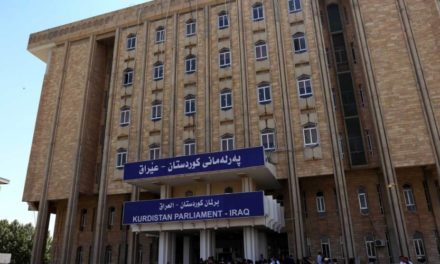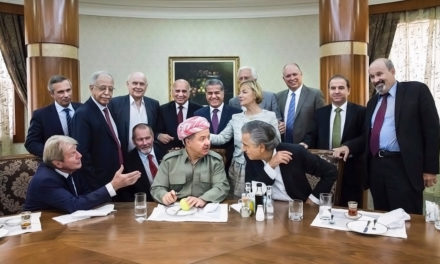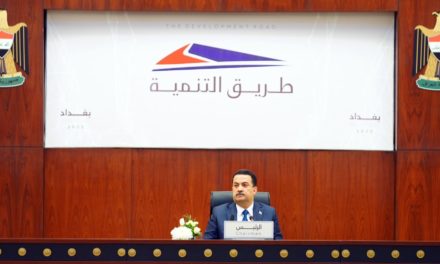On June 2, Johns Hopkins School of Advanced International Studies hosted a day long event featuring panel discussions on Iraq’s economy. The first panel hosted the Kurdistan Regional Government’s (KRG) minister of coordination and follow up, Noori Abdulrahman via video call from Erbil. Abdulrahman was asked about the International Monetary Fund (IMF) loan agreement of $15 billion over three years, signed with the Iraqi government on May 19. The loan has yet to be dispersed and Abdulrahman was asked whether the KRG would receive a share of that loan.
Abdulrahman responded that he does not believe Iraq is able to fulfill the requirements of the IMF to secure the loan and if they do, is not sure the KRG will get “their share” of it. In his response, Abdulrahman revealed that the KRG minister of planning, Ali Sindi, participated in the negotiations with the IMF as part of the Iraqi delegation. The negotiations took place in mid-April in Washington, D.C. Iraqi finance minister, Hoshyar Zebari, is the uncle of KRG president Massoud Barzani and has been the Kurdistan Democratic Party’s (KDP) man in Baghdad since the overthrow of Saddam. His close ties with the KRG gave way for Sindi to take part in the Iraqi delegation.
There are two problems with Sindi’s participation in the IMF negotiations. First, Sindi represents the KRG and has no position within in the government in Baghdad. The IMF has a clear policy of dealing only with central governments. Article V, Section 1 of the Articles of Agreement of the International Monetary Fund states:
Agencies dealing with the Fund: Each member shall deal with the Fund only through its Treasury, central bank, stabilization fund, or other similar fiscal agency, and the Fund shall deal only with or through the same agencies.
The loan deal is a matter that pertains only to the central government so Sindi’s participation violates not only IMF policy but also the Iraqi constitution. Article 110 of the constitution clearly states the central government has exclusive authority in formulating foreign policy and diplomatic representation.
Secondly, Sindi’s presence at the negotiating table gives the KRG access to confidential information that belongs exclusively to the central government. There was no direct representation from members of the remaining 15 provinces in Iraq. That role falls to the Ministry of Finance, which is supposed to represent the interests of all Iraq’s people.
Furthermore, if the KRG claims it is entitled to receive 17% of the loan, as with the federal budget, it raises a serious questions about the ability of the KRG to repay their share of the loan.
The central government must ask this question since for years the KRG has been receiving its share of the federal budget and contributing little back. The KRG has a better record of selling oil independently than contributing to the federal oil sales of Iraq where majority of the federal budget comes from. If the KRG is to receive a sum of the loan, the central government must ensure the KRG is held responsible to repay its share back, and of course, implement the necessary fiscal and economic reforms that are stipulated by the terms of the IMF agreement. The central government can no longer be responsible for the misspending and squandering of the KRG’s finances while it has its own financial problems to address.
Whether the KRG receive a share of the IMF loan or not, Ali Sindi of the KRG and Iraq’s finance minister Hoshyar Zebari should be held accountable for violating the Iraqi constitution. Their actions are unacceptable and KRG officials have no authority to publicly share information gathered from IMF negotiations, especially if it could affect the outcome of Iraq’s deal with the IMF.

Hamzeh Hadad
Hamzeh Hadad is an Iraqi writer and commentator. He holds a Bachelor of Arts with honors from the University of King’s College.










